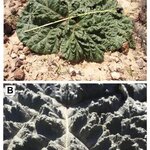
I recently saw the article about the findings of Keiko the killer whale's unsuccessful release in 1998. This was a result of a public campaign to "Free Willy" and reintroduce him into the wild after 19 years of captivity. The killer whale was captured at approximately 2 years of age, so had no experience living in the wild, and apparently there was no information regarding the original family from where he was taken.
An entry on facebook caught my attention though:
"His 5 years in the wild was a definite improvement in quality of life over his previous years in a tank, and many…

